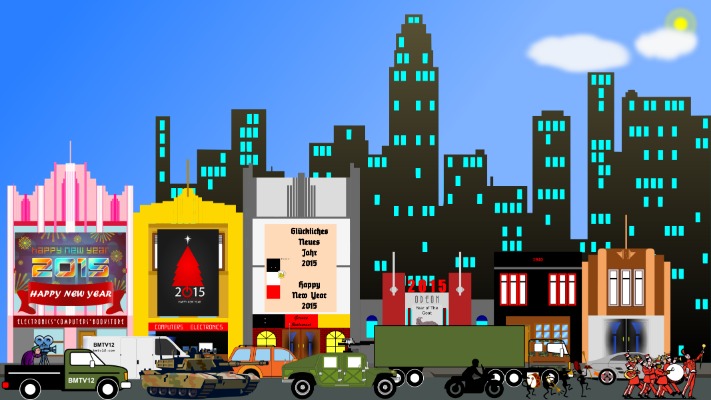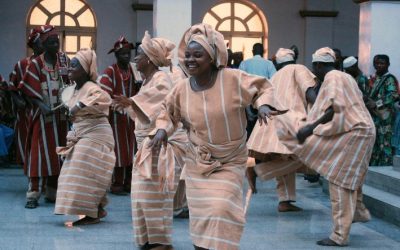Geographical Location and Size of Lagos
Lagos is a vibrant and bustling city located in the southwestern part of Nigeria. Known for its strategic position along the Atlantic coast, Lagos serves as a major economic and commercial hub in the country. Covering an extensive area, it encompasses a diverse range of neighborhoods, islands, and mainland districts, making it one of the largest cities in Nigeria by both population and landmass.
Better Understanding of Lagos’ Geographical Boundaries
Lagos, a major city in Nigeria, is located along the southwestern coast of the country, bordering the Atlantic Ocean. It is geographically positioned approximately between latitudes 6° 25′ N and 6° 33′ N, and longitudes 3° 18′ E and 3° 52′ E. The city spans a total area of about 1,171 square kilometers, making it one of the largest and most densely populated cities in Nigeria. Lagos is part of the Lagos State and is bounded by the Atlantic Ocean to the south, with surrounding regions including Ogun State to the north and east, providing a diverse geographical landscape. Its strategic location and expansive size contribute significantly to its role as Nigeria’s economic and cultural hub.
Population Density and Urban Expansion
Lagos is a major city located in the southwestern part of Nigeria, situated along the Gulf of Guinea. Covering an area of approximately 1,171 square kilometers, it is one of the smallest yet most densely populated cities in the country. The city’s strategic coastal position has contributed to its growth as a commercial and financial hub.
With a population that exceeds 14 million residents, Lagos ranks as Nigeria’s most populous city and one of the largest in Africa. Its high population density results in a bustling, vibrant urban environment with diverse communities and a dynamic economy. The rapid urban expansion over recent decades has transformed Lagos from a small port town into a sprawling metropolis, often characterized by continuous development and new suburbs emerging on the outskirts.
Economic Significance of Lagos
Lagos, Nigeria’s largest city, holds immense economic significance as a major commercial and financial hub in West Africa. It serves as a gateway for international trade, boasting a vibrant port and diverse industries ranging from banking and finance to entertainment and technology. The city’s dynamic economy and strategic location have made it a vital center for business growth, attracting investments and fostering innovation across the region.
Commercial Hub and Business Opportunities
Lagos, Nigeria’s biggest city, holds immense economic significance as the country’s foremost commercial hub. Its strategic location along the Atlantic coast facilitates international trade, attracting numerous multinational companies and fostering vibrant markets. The city’s diverse economy encompasses finance, manufacturing, entertainment, technology, and real estate sectors, making it a powerhouse for economic activities in West Africa.
As a commercial hub, Lagos offers a myriad of business opportunities for entrepreneurs and investors. The city’s dynamic environment encourages startup culture, with a growing number of tech startups, fintech firms, and creative industries thriving in its bustling neighborhoods. Infrastructure development, such as ports, airports, and road networks, further enhances business prospects and connectivity within Nigeria and beyond.
Moreover, Lagos’s youthful population and large consumer base create a fertile ground for retail, services, and innovation-driven enterprises. Its status as a financial center provides access to banking, investment, and funding resources, enabling both local and international businesses to expand and succeed. Overall, Lagos continues to be a pivotal city driving Nigeria’s economic growth and serving as a gateway to numerous commercial opportunities across the region.
Major Industries and Employment Sectors
Lagos, one of the most prominent cities in Nigeria, holds immense economic significance due to its status as a major financial and commercial hub. The city serves as the economic engine of the country, fostering growth through various industries and sectors that contribute substantially to Nigeria’s GDP.
The major industries in Lagos include manufacturing, telecommunications, finance, oil and gas, transportation, entertainment, and real estate. These industries thrive thanks to Lagos’s strategic location, large population, and advanced infrastructure, making it a focal point for industrial activities in Nigeria.
Employment sectors in Lagos are diverse, with significant employment generated in banking, technology, shipping, trade, tourism, and services. The city provides opportunities for both skilled and unskilled workers, supporting livelihoods across a broad spectrum of the population. Overall, Lagos’s vibrant economy and diverse industries make it a vital economic powerhouse in Nigeria and West Africa.
Role in Nigeria’s Economy
Lagos is one of the most economically significant cities in Nigeria, serving as the nation’s financial and commercial hub. It hosts the largest port in West Africa, facilitating substantial import and export activities that drive the country’s economy. The city’s diverse economy includes finance, manufacturing, telecommunications, and entertainment industries, making it a key contributor to Nigeria’s GDP. Lagos also attracts numerous foreign investments due to its vibrant business environment and infrastructure development. Additionally, it provides employment opportunities for millions, supporting both local and national economic growth. Overall, Lagos plays a crucial role in shaping Nigeria’s economic landscape and ensuring its integration into the global economy.
Cultural Diversity and Social Life
Big cities in Nigeria are vibrant hubs of cultural diversity and dynamic social life. These urban areas bring together people from various backgrounds, creating a melting pot of traditions, languages, and customs. The lively atmosphere fosters unique social interactions, fostering a sense of community and inclusivity amidst the bustling city environment.
Multicultural Environment and Languages Spoken
Big cities in Nigeria, such as Lagos and Abuja, are vibrant hubs of cultural diversity and social interaction. These cities attract people from different ethnic backgrounds, creating a dynamic and multicultural environment where various traditions, customs, and beliefs coexist harmoniously. The social life in these urban areas is enriched by a variety of festivals, markets, music, and culinary experiences that reflect the rich cultural heritage of Nigeria. Languages spoken in these cities are equally diverse; while English remains the official language used in government and formal communication, many residents speak indigenous languages like Yoruba, Igbo, Hausa, and others. This linguistic variety fosters cross-cultural understanding and contributes to a lively and inclusive social atmosphere. Overall, Nigeria’s big cities serve as melting pots of cultures and languages, offering residents and visitors a unique and enriching urban experience.
Festivals and Cultural Events
In a bustling Nigerian city, cultural diversity plays a vital role in shaping the vibrant social life and rich traditions. The city is a melting pot of various ethnic groups, each bringing unique festivals and cultural events that reflect their heritage. These celebrations foster community spirit, promote mutual understanding, and showcase Nigeria’s colorful cultural tapestry.
- Festivals such as the Osun-Osogbo Festival highlight the spiritual and cultural identity of the Yoruba people, drawing visitors and locals alike.
- Events like the Argungu Fishing Festival in nearby regions attract tourists and celebrate traditional fishing techniques and communal unity.
- Music and dance festivals are common, showcasing traditional drumming, dance, and attire that vary across ethnic groups.
- Annual cultural exhibitions and ceremonial events often feature craft displays, traditional foods, and storytelling, preserving age-old customs.
Traditional and Modern Influences
In the bustling cities of Nigeria, cultural diversity plays a vital role in shaping social life. People from various ethnic backgrounds, including Yoruba, Igbo, Hausa, and others, come together, creating a rich tapestry of traditions and customs. This diversity fosters a vibrant social environment where celebrations, festivals, and daily interactions are infused with unique cultural expressions.
Traditional influences remain strong in Nigerian cities, evident in local cuisine, music, dance, and festivals that are celebrated alongside modern lifestyles. However, modern influences introduced through globalization, technology, and urbanization are also shaping social behaviors. Young Nigerians often blend traditional values with contemporary trends, resulting in a dynamic cultural landscape that reflects both heritage and modernity.
This interplay of traditional and modern influences enhances social cohesion while encouraging innovation and cultural exchange. In big cities like Lagos and Abuja, this fusion creates an exciting, diverse social scene where cultural identity is celebrated amidst the progress of urban development.
Transportation Infrastructure in Lagos
Transportation infrastructure in Lagos is a vital component of the city’s rapid growth and development. As one of the largest and most bustling cities in Nigeria, Lagos faces unique challenges in ensuring efficient movement for millions of residents and visitors. The city has invested in various transportation systems, including roads, bridges, buses, and rail networks, to improve connectivity and reduce congestion. These efforts are essential for supporting economic activities and enhancing the quality of life in this vibrant urban center.
Road Networks and Traffic Management
Lagos, Nigeria’s largest city, faces significant challenges in its transportation infrastructure, particularly in its road networks and traffic management systems. The city’s rapid population growth has led to an increase in vehicle numbers, causing congestion and long Commute times. Lagos’s road network includes major highways, arterial roads, and local streets, but many are inadequately maintained or overwhelmed by traffic volumes. Traffic management efforts include the implementation of traffic lights, police patrols, and some innovative solutions like dedicated bus lanes and electronic traffic control systems. However, ongoing investments and urban planning are essential to improve mobility, reduce congestion, and ensure efficient transportation in this bustling metropolis.
Public Transit Systems: Buses, Danfos, and Future Plans
Lagos, Nigeria’s largest city, faces significant challenges and opportunities in its transportation infrastructure. The city relies heavily on a diverse public transit system, including buses and danfo vehicles, which are vital for daily commutes of millions of residents. These buses operate extensively across the city, offering an affordable means of transportation but often encounter issues such as congestion, aging fleets, and irregular schedules. Danfo buses, in particular, are iconic in Lagos, characterized by their vibrant colors and high passenger capacities, serving as the backbone of urban mobility. To address growing urbanization demands, Lagos State has initiated several future plans aimed at modernizing its transportation infrastructure. These include the development of Bus Rapid Transit (BRT) corridors, expansion of rail networks, and the adoption of greener transportation options. Such initiatives aim to reduce traffic congestion, improve safety, and promote sustainable urban development in Nigeria’s big city.
Ports and Maritime Transportation
Lagos, Nigeria’s largest city, boasts a complex and vital transportation infrastructure that supports its dynamic economy and urban growth. The city’s transportation system includes a network of roads, bridges, and rail lines that facilitate the movement of millions of residents and goods daily.
Ports and maritime transportation play a crucial role in Lagos’s infrastructure, serving as the primary gateways for international trade in Nigeria. The Lagos Ports Complex, also known as Apapa Port, is one of the busiest ports in West Africa, handling a significant portion of Nigeria’s import and export activities. It comprises the Apapa and Tin-Can Island Ports, equipped with modern facilities to manage large cargo vessels efficiently.
Maritime transportation extends beyond port operations, with numerous ferry services providing an essential link between Lagos mainland and its islands, including Victoria Island, Ikoyi, and Lekki. These maritime routes help alleviate road congestion and offer an efficient alternative for commuters and freight transport.
The development of the Nigerian Maritime Industry, including the expansion of port facilities and investment in harbor logistics, aims to enhance Lagos’s role as a regional maritime hub. Continuous improvements in port infrastructure and maritime services are vital for sustaining economic growth and ensuring smooth transportation within this vibrant Nigerian metropolis.
Education and Healthcare Facilities
Big cities in Nigeria are hubs of development, offering a wide range of education and healthcare facilities that cater to their growing populations. These urban centers play a crucial role in providing access to quality learning institutions and medical services, which are essential for the well-being and progress of residents. As Nigeria’s major cities continue to expand, the improvement and accessibility of education and healthcare remain key priorities for sustainable urban growth.
Major Educational Institutions
Big cities in Nigeria are equipped with a range of Education and Healthcare facilities that cater to the needs of their diverse populations. They host numerous major educational institutions, including universities, colleges, and vocational schools, which attract students from across the country and beyond. These urban centers also feature modern healthcare facilities such as hospitals, clinics, and specialist medical centers that provide comprehensive health services to residents. The presence of these institutions significantly contributes to the development and sustainability of the cities, fostering a well-educated and healthy populace.
Healthcare System and Medical Services
Big cities in Nigeria, such as Lagos and Abuja, are equipped with diverse education and healthcare facilities that cater to their large populations. These urban centers are equipped with numerous schools, universities, hospitals, and clinics to serve residents and visitors alike.
- Educational institutions in these cities include international schools, federal and state universities, technical colleges, and vocational training centers.
- Healthcare facilities range from large public hospitals to private clinics, offering comprehensive medical services including emergency care, specialized treatments, and routine health checks.
- The healthcare system is divided into public and private sectors, with public hospitals often facing challenges like resource shortages, while private facilities generally provide higher-quality services.
Medical services in these cities feature modern diagnostic equipment, specialist doctors, and accessible pharmacies. Efforts are ongoing to improve healthcare infrastructure, increase healthcare accessibility, and ensure better health outcomes for all residents.
Urban Challenges Faced by Lagos
Lagos, Nigeria’s largest city, faces a multitude of urban challenges that impact its residents’ quality of life. Rapid population growth, inadequate infrastructure, traffic congestion, and environmental issues are among the major problems confronting this bustling metropolis. Addressing these challenges is crucial for ensuring sustainable development and improving the living conditions of Lagos inhabitants.
Traffic Congestion and Pollution
Lagos, Nigeria’s largest city, faces significant urban challenges that impact the quality of life for its residents. Among these, traffic congestion and pollution are the most pressing issues. The city’s rapid population growth and influx of residents have led to an overwhelming number of vehicles on the roads, causing severe traffic jams that hinder daily commuting and economic activities. This congestion results in long travel times, increased fuel consumption, and heightened stress levels for commuters. Additionally, the high volume of vehicles contributes to air pollution, releasing harmful emissions that degrade air quality and pose health risks to residents. Industrial activities, inadequate waste management, and the influx of waste into waterways further compound pollution problems. Addressing these challenges requires comprehensive urban planning, improved public transportation systems, and policies aimed at reducing emissions and waste, to ensure a healthier and more sustainable future for Lagos.
Housing and Overpopulation Issues
Lagos, Nigeria’s largest city, faces numerous urban challenges that significantly impact its residents and infrastructure. Overpopulation puts immense pressure on the city’s resources, leading to overcrowded neighborhoods, strained public services, and increased traffic congestion. Housing problems are prevalent, with many residents living in informal settlements or slums due to the high demand for affordable accommodation. This rapid population growth often outpaces urban planning efforts, resulting in inadequate infrastructure, poor sanitation, and environmental degradation. Addressing these issues requires comprehensive urban planning, investment in affordable housing, and sustainable development strategies to improve living conditions and manage growth effectively in Lagos.
Waste Management and Environmental Concerns
Lagos, Nigeria’s largest city, faces numerous urban challenges that impact its development and sustainability. Rapid population growth has led to increased pressure on infrastructure, transportation, and public services, resulting in congestion and strain on resources. Waste management is a significant issue in Lagos, with inadequate disposal systems leading to overflowing dumpsites and pollution. This improper waste handling exacerbates health risks and environmental degradation. Additionally, environmental concerns such as flooding, erosion, and pollution from industrial activities further threaten the city’s ecological balance and residents’ wellbeing. Addressing these challenges requires comprehensive planning, sustainable practices, and improved governance to ensure Lagos’s growth benefits all inhabitants.
Tourism and Landmarks
Big cities in Nigeria are vibrant hubs of culture, history, and modern development. They attract countless visitors each year who come to explore iconic landmarks and experience the dynamic atmosphere. Tourism in these bustling urban centers offers a unique blend of tradition and innovation, making them exciting destinations for travelers from around the world.
Popular Tourist Destinations
Nigeria is home to several vibrant and bustling cities that attract numerous tourists with their unique landmarks and attractions. Among these, Lagos stands out as a major destination for travelers seeking a mix of modernity and rich cultural heritage.
- National Theatre Lagos: A cultural hub showcasing Nigerian arts, performances, and architecture.
- Tarkwa Bay Beach: A popular spot for relaxation, water sports, and enjoying the Atlantic coastline.
- Lekki Conservation Centre: A lush nature reserve providing a canopy walk and wildlife viewing experiences.
- Freedom Park: An historical site turned entertainment and cultural center, offering concerts and exhibitions.
- Potiskum Market: One of the largest and busiest markets in Nigeria, offering a glimpse into local commerce and culture.
Other notable cities like Abuja, the capital city, feature landmarks such as the Abuja National Mosque and the Aso Rock, which are popular for sightseeing. These cities continue to draw tourists eager to explore Nigeria’s diverse landscape and vibrant urban life.
Cultural and Historic Sites
Nigeria’s largest city, Lagos, is a bustling metropolis renowned for its vibrant culture, dynamic landmarks, and rich history. Visitors flock to see iconic sites such as the National Museum, which houses Nigerian art and historical artifacts, and the Lekki Conservation Centre, a natural haven within the city. The cityscape is dotted with impressive landmarks like the Nigerian National Theatre and Tafawa Balewa Square, reflecting Nigeria’s cultural heritage. Lagos also boasts beautiful beaches, historic markets, and diverse neighborhoods that showcase the country’s cultural diversity. Exploring Lagos offers a unique blend of modernity and tradition, making it a compelling destination for travelers interested in Nigeria’s cultural and historic richness.
Nightlife and Entertainment Venues
In the bustling cities of Nigeria, tourism is a vibrant industry that highlights the country’s rich cultural heritage and modern attractions. Landmarks such as the National Museum in Lagos, the Enugu Coal Mine, and the ancient walls of Kano offer visitors a glimpse into Nigeria’s diverse history. Nightlife and entertainment venues flourish across major cities like Lagos and Abuja, featuring lively nightclubs, music lounges, and traditional performance spaces that showcase Afrobeat, highlife, and other Nigerian music genres. These cities offer a dynamic blend of historical sites and contemporary entertainment options, making them attractive destinations for tourists and locals alike.
Future Developments and Urban Planning
The rapid growth of Nigeria’s largest cities presents both exciting opportunities and significant challenges for future development and urban planning. As urban populations continue to expand, sustainable strategies are essential to ensure efficient infrastructure, improved quality of life, and resilient communities. Innovative planning approaches are increasingly crucial in transforming these vibrant metropolises into thriving, environmentally friendly urban centers.
Government Initiatives for Sustainable Growth
Future developments and urban planning in Nigerian cities are increasingly focusing on sustainable growth to address challenges such as rapid population expansion, traffic congestion, and environmental degradation. Innovative government initiatives aim to promote eco-friendly infrastructure, smart city technologies, and efficient land use planning to create more livable urban spaces.
In particular, Nigerian governments are investing in sustainable transportation systems, including expanded public transit networks and bicycle-friendly roads, to reduce carbon emissions and enhance mobility. They are also prioritizing green building standards and renewable energy integration within urban developments to foster environmental resilience.
Urban planning efforts are now increasingly driven by comprehensive master plans that involve community participation and data-driven decision-making. These plans aim to optimize land use, protect green spaces, and improve waste management, ensuring cities can accommodate growth while maintaining ecological balance.
Additionally, initiatives such as establishing special economic zones and urban regeneration projects are designed to boost economic activity without compromising sustainability. These strategies aim to attract investments, create jobs, and improve infrastructure, ultimately supporting Nigeria’s vision for sustainable and inclusive urban development.
Smart City Projects and Technological Advancements
Future developments and urban planning in Nigeria’s largest cities are increasingly focusing on the integration of smart city projects and technological advancements to enhance living standards and sustainability. These initiatives aim to address challenges such as traffic congestion, inadequate infrastructure, and rapid urbanization by leveraging cutting-edge technology.
Smart city projects in Nigerian metropolises like Lagos and Abuja are utilizing Internet of Things (IoT) devices, sensor networks, and data analytics to optimize traffic management, improve public safety, and streamline resource allocation. For instance, intelligent traffic light systems help reduce congestion, while smart waste management solutions improve cleanliness and efficiency.
Technological advancements are also transforming urban planning processes, allowing for more precise mapping, forecasting, and data-driven decision making. Drones and geographic information systems (GIS) are being employed to better understand urban growth patterns and plan infrastructural developments accordingly.
Looking forward, Nigeria’s big cities are poised to become hubs of innovation with the adoption of renewable energy technologies, smart grids, and sustainable building practices. These developments aim to create more resilient, eco-friendly, and equitable urban environments that meet the needs of growing populations while fostering economic growth.





0 Comments